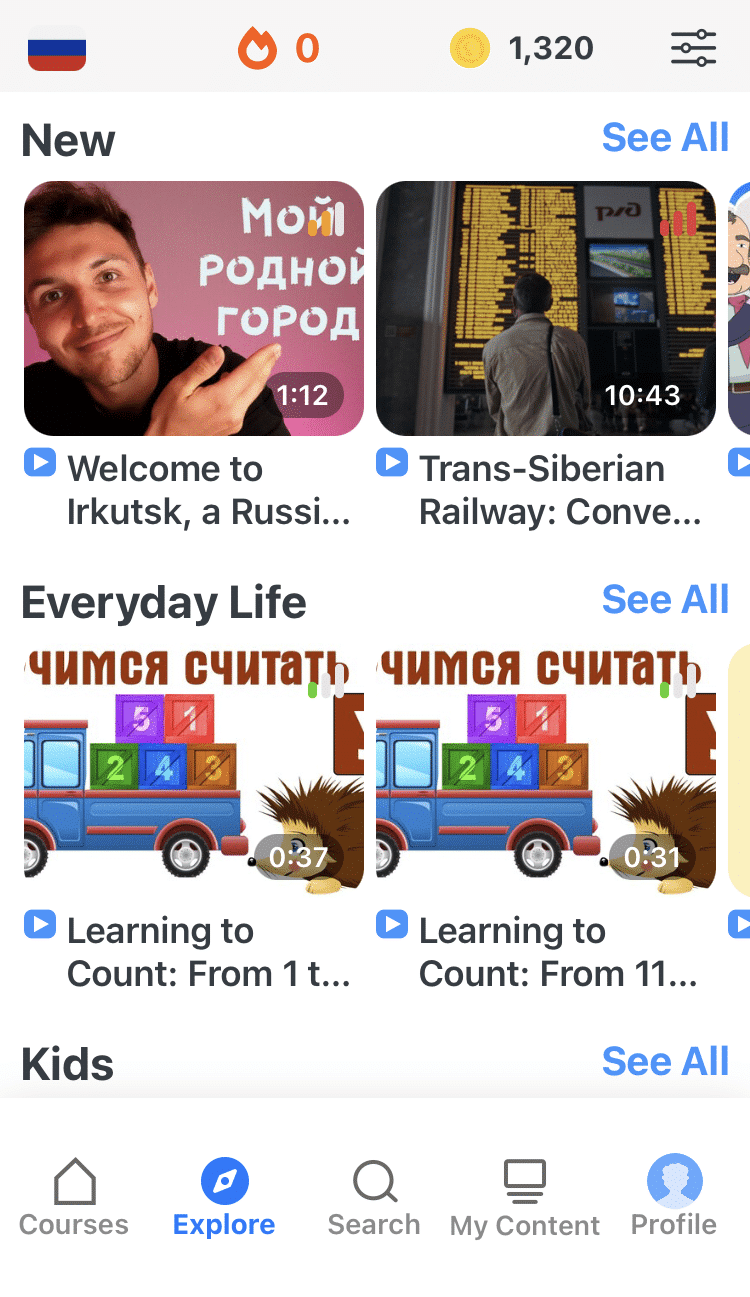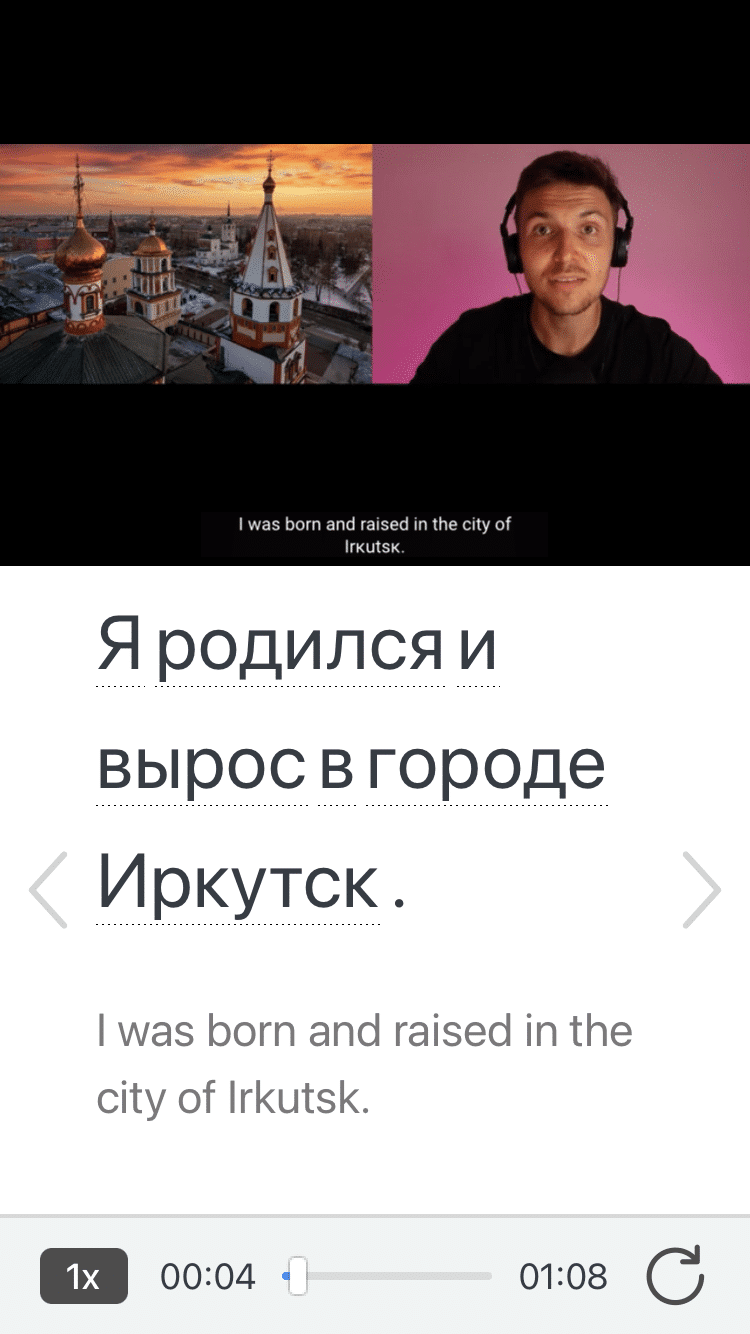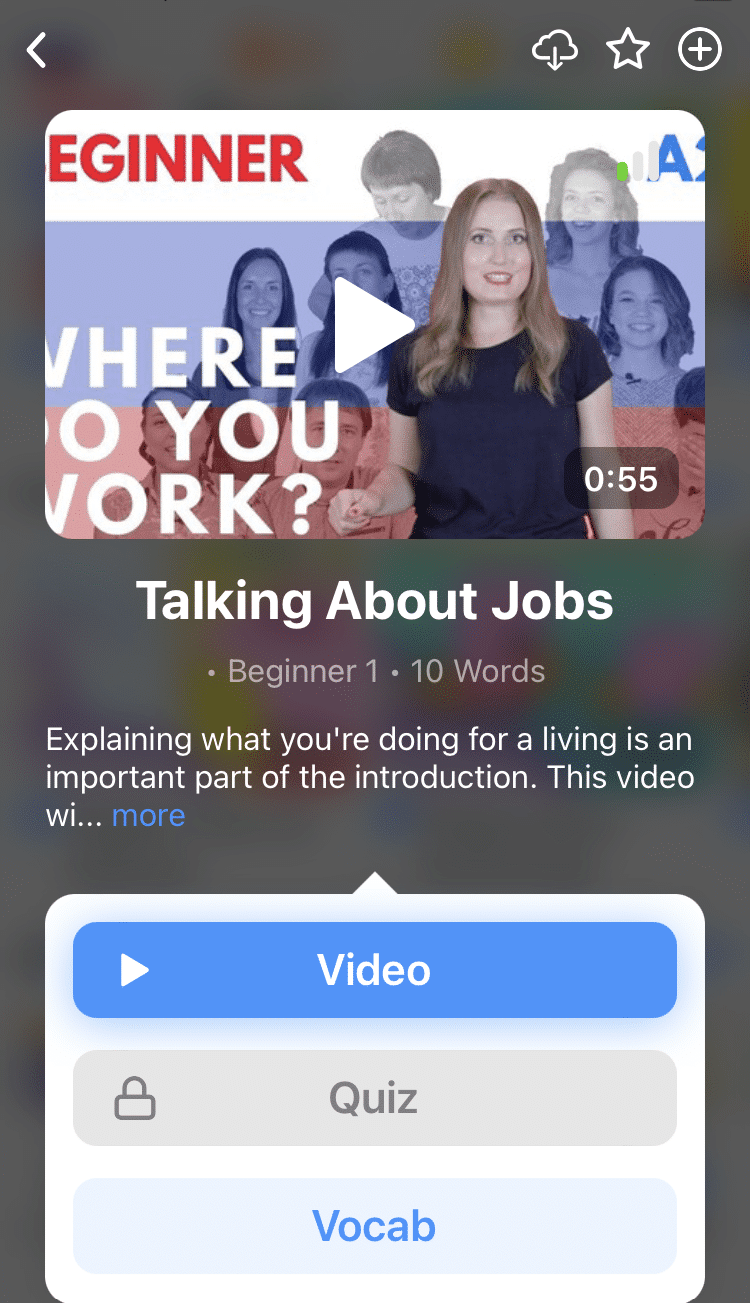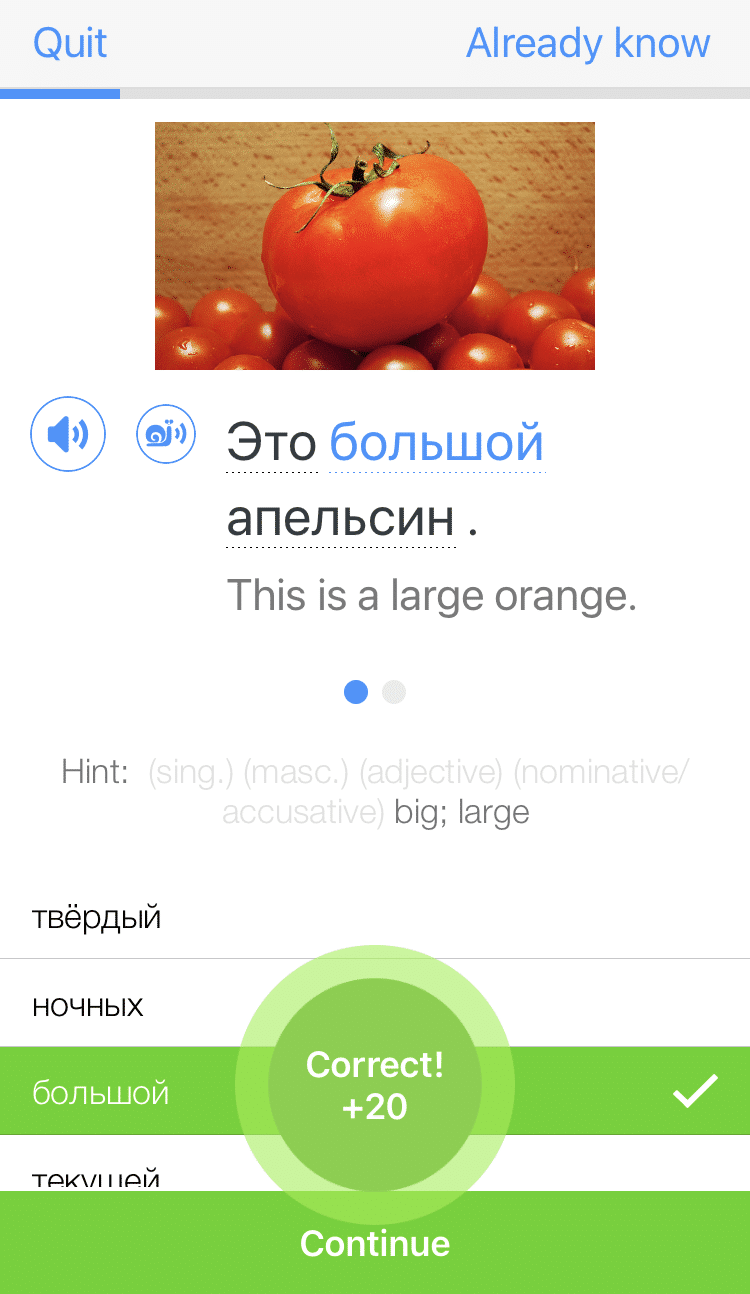
How to Say Thank You in Russian: 12 Easy Phrases
There aren’t many cultural differences in how we thank people in Russian compared to English.
The most common way to give thanks in Russian is спасибо. However, there’s certainly more than one way to thank someone in Russian.
With these 12 phrases, you’ll learn how to say thank you in Russian informally and formally in specific situations.
We’ve also provided both audio and written pronunciation guides so you know exactly how to say them.
Let’s get started!
Contents
- 1. Спасибо. (Thanks./Thank you.)
- 2. Спасибо за помощь. (Thanks for your help.)
- 3. Большое спасибо! (Thank you very much!)
- 4. Огромное спасибо! (Thanks so much!)
- 5. Спасибо от всего сердца и души. (Thank you from the bottom of my heart and soul.)
- 6. Вы очень добры. (That’s very kind of you.)
- 7. Я очень благодарен. (I’m very grateful.)
- 8. Моё почтение. (My regards.)
- 9. Благодарю Вас. (I thank you.)
- 10. Весьма признателен. (Much obliged.)
- 11. Я очень обязан Вам. (I am in your debt.)
- 12. Я этого никогда не забуду. (I’ll never forget this.)
- Why Learn Multiple Ways to Say “Thank You” in Russian
- How to Practice Saying “Thank You” in Russian
- And One More Thing...
Download: This blog post is available as a convenient and portable PDF that you can take anywhere. Click here to get a copy. (Download)
1. Спасибо. (Thanks./Thank you.)
Pronunciation: Spa-SEE-bah
Usage: Informal/Formal
This is the most basic way to thank someone in Russian.
Alone, it’s fairly casual. You would use this term when quickly thanking someone for a simple task or around close friends and family. However, it also wouldn’t be out of place in a formal situation, either.
It’s an all-around way to say, “Thanks!”
It’s a very versatile word and definitely the one that you should memorize first and foremost. No matter what the case is, you can never go wrong with a спасибо!
Спасибо за подарок.
(Thank you for the gift.)
Спасибо за совет.
(Thanks for the advice.)
Variations: This word has several more casual and informal variations.
- Пасибо / Пасиба (“corrupt” spelling)
- Пасибки / Спасибочки / Спасибоньки (more cutesy)
2. Спасибо за помощь. (Thanks for your help.)
Pronunciation: Spa-SEE-bah za PO-mush.
Usage: Informal
This variation of the base “thank you” word спасибо is used specifically when someone does you a favor or helps out in some way.
You can certainly use спасибо alone to thank people for doing you a favor, but Спасибо за помощь is a much more expressive way to communicate that you’re grateful.
If someone goes out of their way to help you, be it in a work environment or just with a friend, use Спасибо за помощь. It wouldn’t really be considered formal, but rather a more genuine way of thanking someone.
Sergei:
Я принёс тебе кофе.
(I brought you a coffee.)
Svetlana:
Спасибо за помощь.
(Thanks for your help.)
3. Большое спасибо! (Thank you very much!)
Pronunciation: Bahl’-SHO-ye spa-SEE-bah!
Usage: Formal
Be sure to use this one with enthusiasm and projection as it literally means “big thank you!”
Большое спасибо is used when someone does something really kind for you.
Alexei’s friends:
Сюрприз! С Днём рождения!
(Surprise! Happy birthday!)
Alexei:
Друзья мои, большое спасибо!
(My friends, thank you so much!)
Variations: You can also flip the word order and say it like this.
- Спасибо большое. (Thank you very much.)
4. Огромное спасибо! (Thanks so much!)
Pronunciation: Og-ROM-nah-ye spa-SEE-bah!
Usage: Informal
Спасибо returns yet again with this phrase, which can also be read as “Thank you so much!” Literally, it means “huge thank you.” Consider it an extra large thank you with a side of gratefulness.
Typically, this phrase is used when someone goes out of their way to help you regardless of their standing with you.
Alternatively, this phrase is used in a sarcastic manner if you’re mad about something or at someone.
Sasha:
Привет! Я слышал, что тебе было тяжело, поэтому я сделал тебе печенье.
(Hey! I heard that you were having a hard time, so I made you some cookies.)
Tatiana:
Огромное спасибо!
(Thank you very much!)
5. Спасибо от всего сердца и души. (Thank you from the bottom of my heart and soul.)
Pronunciation: Spa-SEE-bah aht vse-VO SER-tsa i du-SHI.
Usage: Informal/Formal
Give this heartfelt thanks to express your gratitude in a more expressive way. Literally, you’re saying “Thank you from my whole heart and soul.”
Vova:
Я думал, что мой телефон потерян навсегда! Спасибо от всего сердца и души.
(I thought that my phone was lost forever. Thank you from the bottom of my heart and soul.)
Variations: You can also cut this one short and just use these phrases.
- Спасибо от всего сердца. (Thank you from the bottom of my heart.)
- Спасибо от всей души. (Thank you from my whole soul.)
6. Вы очень добры. (That’s very kind of you.)
Pronunciation: Vy O-chen’ DOB-ry.
Usage: Formal
This can also be read as “It’s very kind of you” or “How kind of you!” This way of expressing thanks is probably the most commonly used phrase for formal situations.
Where Спасибо is a catch-all “thank you” word for most informal settings, Вы очень добры is ideal for more polite situations.
If a superior member of management at the workplace helps you out or an authority figure in general gives you a hand, this is a good one to use.
Yana:
Я рада предложить Вам повышение.
(I’m pleased to offer you a raise.)
Nikita:
О, боже! Вы очень добры!
(Oh, my! That’s very kind of you!)
7. Я очень благодарен. (I’m very grateful.)
Pronunciation: Ya O-chen’ bla-ga-DAH-ren.
Usage: Formal
Я очень благодарен expresses a more personal touch, though. You’re thanking someone formally but also making it clear that you feel deeply grateful in your heart for what they’ve done.
Officer Misha:
Мы считаем, что Вы невиновны. Вы можете идти, сэр.
(We believe that you’re innocent. You’re free to go, sir.)
Igor:
Я очень благодарен!
(I am very grateful!)
Variations: For the most part, this can be used interchangeably with the phrase we learned previously.
- Вы очень добры. (You’re too kind.)
8. Моё почтение. (My regards.)
Pronunciation: Mah-YO pahch-TYE-ni-ye.
Usage: Formal
This can also be read as “My respects.” This is used pretty much the same way those phrases are used in English.
It’s worth noting, though, that this phrase is quite old-fashioned and you wouldn’t typically hear or use it except in very formal situations.
Use Моё почтение when paying your thanks and respects to someone who is deceased or just not present. This is definitely on the formal side of “thank you” in Russian.
Aunt Toma:
Прошу Вас передать моё почтение Вашей матери. Она помогала мне много раз.
(Please give my regards to your mother. She has helped me out many times.)
9. Благодарю Вас. (I thank you.)
Pronunciation: Bla-ga-dah-RYU vas.
Usage: Formal
Save this one for when a person does something extremely kind or generous. This phrase is quite formal and comes off as cool and restrained so keep that in mind when you chose to use it.
Save it for a situation where you want to thank someone without opening up too much, or without seeming overly friendly.
Artem:
Я хотел бы предоставить Вам место для проживания.
(I would like to offer you a place to stay.)
Ivan:
Благодарю Вас.
(I’m so grateful to you.)
10. Весьма признателен. (Much obliged.)
Pronunciation: Ves’-MA priz-NA-tye-lyen.
Usage: Formal
This grand phrase is more appropriate for formal situations. It’s a way to express that you’re grateful and obligated to someone for their service or assistance.
When someone in a formal situation does you a favor or lends you a helping hand, use Весьма признателен.
Teacher:
Я могу продлить срок выполнения задания на сутки.
(I can extend the assignment deadline by 24 hours.)
Student:
Я весьма признателен Вам.
(I’m very grateful to you.)
11. Я очень обязан Вам. (I am in your debt.)
Pronunciation: Ya O-chen’ ob-YA-zan vam.
Usage: Formal
The adjective обязанный means “obliged” or “obligated,” so when you use this phrase, you’re saying that you’re “duty-bound” to someone. This expression is also on the more formal side.
While you can mean it figuratively, as a way to say an extreme “thanks,” you can also mean it literally, as an “I owe you!”
Anna:
Я могу закончить Вашу работу. Идите домой к своим детям.
(I can finish your work. Go home to your kids.)
Liza:
Вы уверены? Спасибо. Я очень обязана Вам.
(Are you sure? Thank you. I’m indebted to you.)
12. Я этого никогда не забуду. (I’ll never forget this.)
Pronunciation: Ya EH-tah-vah ni-kahg-DA nye za-BU-du.
Usage: Informal
When a person does something so incredibly helpful or kind, use this saying to let them know that you’ll never forget their kindness.
Typically, you’d use this in conjunction with a more standard “thank you.”
Sasha:
Огромное спасибо. Вы спасли меня. Я этого никогда не забуду.
(A huge thank you. You saved me. I’ll never forget this.)
Why Learn Multiple Ways to Say “Thank You” in Russian
- Broadening your vocabulary helps you become fluent. This may seem obvious, but it’s important to remember when you’re tempted to call it quits after learning just one Russian phrase for “thank you.” The more vocabulary words you know, the closer you are to achieving fluency in Russian.
- There are formal and informal ways of speaking Russian, so you should know the correct phrases for different situations. Knowing casual and proper ways to thank someone in Russian can help you avoid a potential linguistic faux pas when speaking to a Russian person or traveling abroad to Russia.
- You can use context clues for each phrase next time they come up in conversation. Knowing various ways to thank someone can help if you’re relatively new to speaking Russian and find yourself in a conversation with a fluent speaker. Using context clues and these different ways of saying “thank you” will help with face-to-face translating and a fluid conversation.
- It shows you can speak like a native. Many beginners just learn one way to say “thank you.” If you know how to thank a stranger for holding the door open versus a friend for throwing you a party, you’ll set yourself apart as a true Russian speaker.
How to Practice Saying “Thank You” in Russian
While all of these phrases express gratitude, some may be better suited for certain situations than others. So what would be the best way to practice them?
- You can listen to how native speakers use them to better understand when one phrase should be used over another.
- While you’re watching movies or TV shows, make note of what’s going on when you hear a certain phrase used.
- You can observe the phrases native speakers use through Russian videos. On the FluentU program, Russian media clips with interactive subtitles demonstrate how expressions pop up naturally in conversation.
- You can listen to podcasts or radio shows to find more examples of these words in action.
While you probably won’t need to memorize each and every one of these phrases to properly thank someone in Russian, it is good to know these for the purpose of overall fluency.
Good luck and усердно учиться (study hard)!
If you love learning Russian and want to immerse yourself with authentic materials from Russia, then I should also tell you more about FluentU.
FluentU naturally and gradually eases you into learning the Russian language and culture. You'll learn real Russian as it's spoken by real Russian people!
FluentU has a very broad range of contemporary videos. Just a quick look will give you an idea of the variety of Russian-language content available on FluentU:
FluentU makes these native Russian videos approachable through interactive transcripts. Tap on any word to look it up instantly.
Access a complete interactive transcript of every video under the Dialogue tab. Easily review words and phrases with audio under Vocab.
All definitions have multiple examples, and they're written for Russian learners like you. Tap to add words you'd like to review to a vocab list.
And FluentU has a learn mode which turns every video into a language learning lesson. You can always swipe left or right to see more examples.
The best part? FluentU keeps track of your vocabulary, and gives you extra practice with difficult words. It'll even remind you when it’s time to review what you’ve learned. You'll have a 100% personalized experience.
Start using the FluentU website on your computer or tablet or, better yet, download the FluentU app from the iTunes or Google Play store. Click here to take advantage of our current sale! (Expires at the end of this month.)
And One More Thing...






